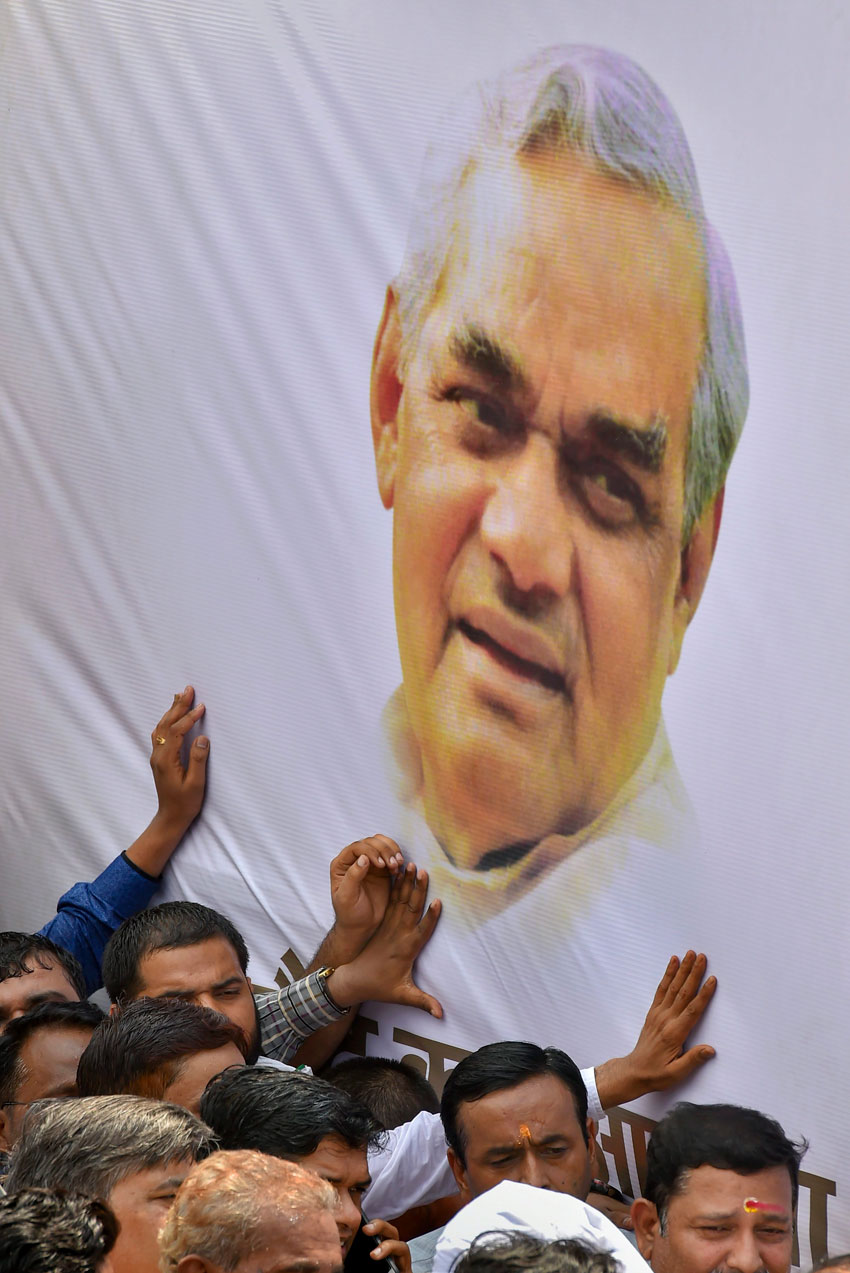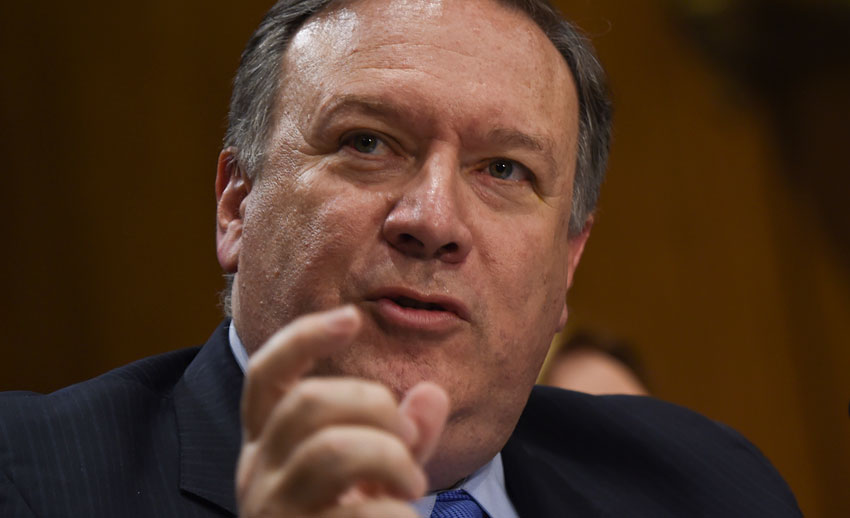India-U.S. Bilateral Relationship Continues to Benefit from Vajpayee’s Vision: Pompeo
U.S. Secretary of State Mike Pompeo says the U.S.-India bilateral relationship continues to benefit from Vajpayee’s vision. (Andrew Caballero-Reynolds/AFP/Getty Images)
Atal Bihari Vajpayee recognized early on that the U.S.-India partnership would contribute to the world’s economic prosperity and security and the two democracies continue to benefit from his vision, U.S. Secretary of State Michael Pompeo has said while condoling the death of the former Prime Minister, writes Yoshita Singh.
Vajpayee, one of India’s most charismatic leaders and inspirational orators, died, Aug. 16, at the age of 93. His death was announced by the All India Institute of Medical Sciences (AIIMS) hospital where he was admitted on June 11 with a variety of ailments.
AIIMS said his condition was stable for the last nine weeks, but it deteriorated over the last 36 hours and he was put on life support systems.
“On behalf of the people of the United States of America, I extend my heartfelt condolences to the people of India on the recent passing of Former Prime Minister Atal Bihari Vajpayee,” Pompeo said in a statement, Aug. 16.
He said Indians will reflect on Vajpayee’s many contributions that led to India’s rise as a global and economic power.
“He championed tirelessly for his country’s development and demonstrated a devotion to improving the lives of every Indian,” Pompeo said.
The top U.S. diplomat recalled Vajpayee’s address to the United States Congress in 2000, when he had famously characterized U.S.-India ties as a “natural partnership of shared endeavors.”
Vajpayee “recognized early on that the United States and India, based on their shared democratic values, could develop a partnership that would contribute to the economic prosperity and security of the region and the world. Today, our two countries and our bilateral relationship continue to benefit from Prime Minister Vajpayee’s vision, which helped promote expanded cooperation,” Pompeo said.
He said the American people stand with the people of India “as we mourn Prime Minister Vajpayee’s passing.”
“Today, we hold the people of India in our thoughts and prayers,” Pompeo added.

Vajpayee, a diabetic, had only one functional kidney. He suffered a stroke in 2009 that weakened his cognitive abilities. Subsequently, he developed dementia.
He joined the Rastriya Swamsevak Sangha (RSS) in 1947 and rose through ranks to become a stalwart of the BJP and was the first non-Congress prime minister to complete a full term in office.
A 10-time MP of the Lok Sabha, Vajpayee announced his retirement from politics in 2005. He was also a member of the Rajya Sabha twice.
Born on December 25, 1924 in Gwalior in Madhya Pradesh to a schoolteacher, Vajpayee did his M.A. in political science. Following a brief flirtation with communism, he became a full-time worker of RSS in 1947.
Vajpayee, a bachelor, is survived by his adopted daughter Namita Kaul Bhattacharya.


